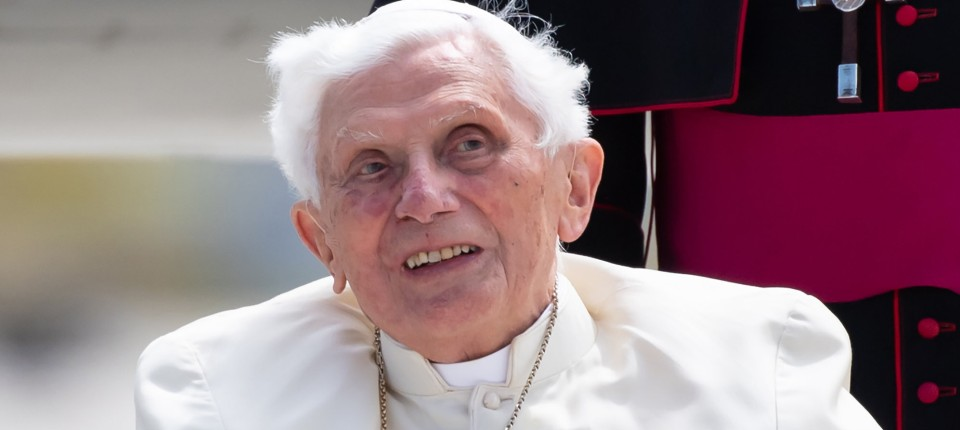Pope Benedict XVI named as accused by Munich Public Prosecutor's Office
Public prosecutor's office listed Benedict XVI as accused
In the sights of the Munich Public Prosecutor's office: the late Pope Emeritus Benedict XVI - shown here in a photo in June 2020.
The Munich Public Prosecutor's office has had a Diocesan headquarters searched in the wake of the abuse scandal - a unique occurrence. Investigators also targeted the late Pope Emeritus and former Archbishop Wetter.
The late Pope Emeritus Benedict XVI has been named as an accused by the Public Prosecutor's Office in its investigation into the Munich abuse report. "The Munich I public prosecutor's office announced on Tuesday that it was being investigated in particular whether a church official could have aided and abetted an act of abuse committed later by a priest through a personnel decision that had not yet become time-barred. However, "either no aiding and abetting main offence could be proven" or such an offence could no longer be prosecuted due to the statute of limitations, the statement on Benedikt continued.
"Therefore, no interrogations of the accused responsible persons took place in these proceedings and thus also no notifications of the initiation and discontinuation of proceedings," the Public Prosecutor's office said.
In addition to the former Pope, two other living church personnel officers were registered as accused, according to the statement: former Munich archbishop, Cardinal Friedrich Wetter and former Munich Vicar General, i.e. bishop's deputy, Gerhard Gruber. "The investigations did not lead to sufficient suspicion of criminal activity on the part of the personnel managers", which is why the proceedings were discontinued.
Expert opinion also heavily incriminates incumbent officials
With regard to Wetter and Gruber, the "Case 26" from the abuse report and thus a cleric convicted in 1962 was in the focus. In addition, the investigations had led to the suspicion of two main offences that were not yet time-barred. In Wetter's case, however, it had not been ascertainable that he had known about abuse allegations and had left the priest in question in service and in Gruber's case it had not been ascertainable that he had deliberately contributed to the abuse.
In connection with "Case 26", the Archbishop's Ordinariate and Palace in Munich were searched in February, the Public Prosecutor's Office now confirmed corresponding media reports. Based on witness statements, they had searched for a "poison cabinet" with explosive documents. "The search revealed that the so-called poison cabinet had already been dissolved in 2011 and the documents in it had been given to the personnel files."
At a press conference, the authority informed about the results of its investigations against church leaders on the basis of the abuse report for the Archdiocese of Munich and Freising. This had been presented by the law firm Westpfahl Spilker Wastl (WSW) in January 2022. The public prosecutor's office has investigated 45 cases on this basis, as it explained.
The WSW report lists 235 alleged perpetrators from 1945 to 2019, including 173 priests. The number of victims is 497, but the number of unreported cases is probably much higher. In the lawyers' view, 67 clerics deserved a sanction under canon law because of the "high density of suspicion". In 43 cases, however, no sanction had been imposed. 40 of them had continued to be employed in pastoral care, including 18 priests convicted of criminal offences.
The report heavily incriminates current and former officials, including Benedict XVI. Joseph Ratzinger had acted wrongly in four cases as Munich archbishop (1977-1982). The current archbishop, Cardinal Reinhard Marx, was accused by the lawyers of not having dealt sufficiently with sexual abuse cases up until 2018. Specifically, the experts also accused the archbishop of not having reported two cases to Rome. Marx's predecessor, Cardinal Wetter, had shown misconduct in 21 cases during his more than 25 years in office, according to WSW.










.jpeg)

Comments